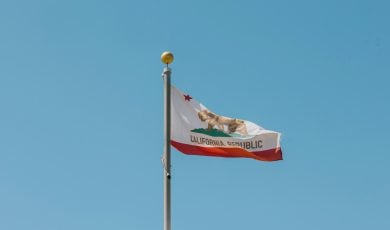Tribal representatives are intrigued by some of the ideas of California sports betting initiative filers but say their approach sets up the proposal for failure.
On Victor Rocha’s weekly webinar series presented by the Indian Gaming Association, tribal leaders discussed PlayUSA’s article in which proponents of two California sports betting initiatives explain their proposal.
Joining Rocha were California Nations Indian Gaming Association (CNIGA) Chairman James Siva, who is also vice-chair of the Morongo Band of Mission Indians, and national Indian Gaming Association Executive Director Jason Giles, a member of the Muscogee (Creek) Nation of Oklahoma.
Siva, who previously discussed the proposal with PlayUSA, wondered why proponents sprung the filings on the majority of tribal leaders rather than being part of the sports betting discussions CNIGA has held this year.
“The timing of this is what confuses me the most. Because we’ve been having discussions about sports betting all year. CNIGA put together a special meeting to talk about sports betting going back to February. So we’ve never really stopped talking about sports betting. The conversations never stopped, you just haven’t been in the room for the conversations.”
Backlash for the way proponents filed initiatives
Kasey Thompson and Reeve Collins, the people behind the initiative filings, revealed to PlayUSA a plan to transfer ownership of illegal offshore online gaming websites currently operating in the state to tribes.
“The ideas of blocking out the black market and hub and spoke and all this stuff is great, but your timeline and the way you did it has killed this thing for certainty in my opinion for 2024,” said Rocha, a member of the Pechanga Band of Indians. “So it’s not going to get on the 2024 ballot. I just don’t believe logistically there’s any way to do it, to get all the tribes in the room and everybody to agree. Because we know what it takes to get tribes to agree and get them in the room. And it takes kid gloves. It’s a process. You have to walk it. It’s respect, and right now I don’t think anybody feels respected.”
Siva agreed, saying he thinks proponents failed before they started by not approaching tribes in the right way.
“I think the entire approach has been an error from the very beginning. When you’re trying to build a relationship with tribes, you have that first opportunity to either get it right or get it very wrong. If you come in the right way, try to build that relationship and do it respectfully, tribes will honor that. If you get in good with tribes, you’ll be good forever. We’re all about loyalty and respect. But if you come in and you disrespect tribes, if you disrespect tribal leaders, if you come in with this kind of air of you know what’s best for Indian Country, you’re done before you even get started.”
Thompson told PlayUSA that they did discuss their proposal with some tribal leaders and C-level executives of tribes. But they tried to keep it quiet overall in order to sneak into the filing period as the only initiative on the ballot.
Rocha commented that they came in with this air of coming in and saving tribes, which just makes everyone upset. He joked that maybe they’re going to “teach us religion” and “teach us how to read and write.” too.
“The picture is getting a little clearer that we’re dealing with a bunch of very ambitious tech bros that feel they’re just going to break the rules and ask for permission later, which sounds very familiar to both of us,” Rocha said.
‘Audacious’ proposal might be needed in CA
Although the webinar participants were critical of the initiative proponents, they saw some potential good aspects of their proposal.
Thompson and Collins pitched tribes the opportunity to take over the currently operating unregulated online gaming market in the state and shut down illegal online casinos. And the proponents offered to pay for the initiative.
“There are some interesting things in here,” Rocha admitted. “The black market, the fact they’ll pay for it all and give us everything. So say it costs $300-to-$400 million and they’re willing to pay for it, that’s not such a bad thing.”
Giles agreed:
“There’s a nugget of an idea here, which is they’re certainly doing more to take on illegal gambling than Kamala Harris ever did as attorney general in California, or at least they’re thinking about it and they have somewhat of a plan based on how PokerStars was cleansed and things of that nature, even though I don’t think it’s an exact analogy in this case. … You can’t believe it’s going to be that simple, the way they’re laying it out.”
Siva said he doesn’t get the sense that proponents are coming in trying to partner with tribes.
“I think they’re just looking at how to solve this problem and how to get into California, and tribes are just a piece of the puzzle that they’re looking at on their whiteboard.”
However, Victor pointed out that the Seminole Tribe of Florida thought outside the box and came up with a novel approach to include online sports betting in its compact through a hub-and-spoke model. And this could be a way for California tribes to do the same.
“The Seminoles were audacious, they took a big bite and they got it. This is kind of what this does too. This is to redefine what sports betting is, and California is where the rubber meets the road for a profit for a lot of these companies. For the tribes to be audacious and do something like this, this is what we’re talking about.”
CNIGA will facilitate but not host meeting with tribes
Siva and Rocha were not necessarily speaking on behalf of their own tribes. And there figures to be a diversity of opinions on the proposal among the 110 California tribes.
Proponents of the initiative told PlayUSA that they have some tribal support. But they weren’t able to connect PlayUSA with any tribal leaders willing to take a leadership role in promoting the initiative and making their position official just yet.
Siva said proponents need to get a large group of tribes in the same room to have any chance to gain tribal acceptance of their initiatives.
CNIGA last met Oct. 26, the day before petitioners filed these initiatives. Its next meeting is Dec. 7, past the Dec. 1 deadline for proponents to amend the initiatives.
“I don’t have the intention to do that work for them,” Siva said. “If they want to find a day and a meeting, we’ll send information out to the tribes. But CNIGA is not going to hold a meeting for them to present to tribes.”
Proponents have about three weeks to convince 110 federally recognized California tribes of their plan’s viability and benefit.
“It puts tribes in a very, very difficult position of trying to make a decision in an incredibly short time frame with a lot of moving pieces,” Siva said.
How proposal could affect future CA sports betting efforts
Following last year’s hostile sports betting initiative campaign, in which a commercial proposition and a tribal proposition lost badly, California tribes and out-of-state commercial interests hoped to take off this election cycle to recuperate.
While they feel this proposal is unlikely to succeed, the webinar participants expect it to shake up future considerations for how to do sports betting in California.
“This really does create a runway for 2026,” Rocha said. “I don’t think anyone in their right mind is thinking 2024 is going to happen.”
Siva said he’s not sure if this 2024 effort would be good or bad for the chances to legalize sports betting in California in 2026.
“In some ways it lays the framework, but in some ways I think it already starts to muddy the water of who is going to push the issue. Is it going to be tribes? Is it going to be a non-tribal entity? This also has to send a shot across the bow for the commercial entities, for the DraftKings and the FanDuels of the world, that if they don’t get something together, they might be cut out of the market all together. This puts everybody on high alert.”








